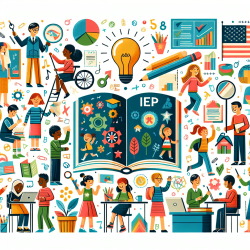Understanding FTLD and Its Impact on Speech-Language Pathology
Frontotemporal Lobar Degeneration (FTLD) is a complex neurodegenerative condition that affects brain regions responsible for social-emotional and language functions. A recent study, "FTLD targets brain regions expressing recently evolved genes," provides insights into the molecular underpinnings of FTLD, particularly focusing on genes associated with human accelerated regions (HARs) and their role in brain vulnerability.
Key Findings from the Research
The study identifies that FTLD targets brain regions with a high expression of genes that have undergone significant evolutionary changes. These regions are often associated with neuromodulatory functions. The research highlights two primary protein aggregates in FTLD: TDP-43 and tau, each influencing distinct brain regions and gene expressions.
Importantly, the study finds a significant overlap between genes expressed in FTLD-targeted regions and those involved in cryptic splicing when TDP-43 function is impaired. This overlap suggests a potential mechanism for selective vulnerability in FTLD, providing a pathway for further investigation into therapeutic interventions.
Implications for Speech-Language Pathology Practitioners
For practitioners in speech-language pathology, these findings underscore the importance of understanding the genetic and molecular basis of neurodegenerative diseases. By integrating this knowledge into practice, therapists can develop more targeted interventions for children with language impairments related to FTLD.
Here are some practical steps practitioners can take:
- Stay Informed: Keep up with the latest research on FTLD and related genetic studies to inform therapy approaches.
- Collaborate with Researchers: Engage with geneticists and neuroscientists to better understand the implications of genetic findings on language development.
- Personalize Interventions: Use data-driven approaches to tailor therapy plans based on individual genetic profiles and brain imaging data.
- Advocate for Research: Encourage further studies into the genetic basis of language impairments to improve therapeutic outcomes.
Encouraging Further Research
The study opens new avenues for research into the genetic factors influencing speech and language development. Practitioners should advocate for and participate in research that explores these connections, ultimately aiming to refine therapeutic techniques and improve outcomes for children with FTLD-related language impairments.
To read the original research paper, please follow this link: FTLD targets brain regions expressing recently evolved genes.










